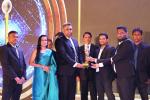As a specialized HR consultant, I’ve witnessed firsthand how operational HR has become pivotal in shaping organizational success.
This article explores the evolution of operational HR and its significance in today’s workforce.
Operational HR encompasses the core activities that support an organization’s workforce and ensure that HR strategies align with business objectives.
This function includes recruitment, onboarding, employee relations, performance management, and compliance with labor laws.
With businesses facing increasing competition, the need for streamlined operational HR practices is more critical than ever.
Historically, HR was often seen as an administrative function, focusing on personnel management and compliance.
However, the modern workplace demands a strategic approach. Here’s how operational HR is evolving to meet these demands:
• Data-Driven Insights
The advent of HR analytics has transformed how organizations make decisions. By leveraging data on employee performance, engagement, and turnover, HR professionals can identify trends and develop targeted strategies. This data-driven approach enables organizations to allocate resources effectively and enhance workforce productivity.
• Prioritizing Employee Experience
The employee experience has emerged as a key driver of organizational success. Operational HR must prioritize creating a positive workplace culture, promoting well-being, and fostering employee engagement. By implementing initiatives like flexible work arrangements, recognition programs, and wellness resources, organizations can attract and retain top talent.
• Agile HR Practices
In a fast-paced business environment, agility is essential. Operational HR must adopt flexible practices that can adapt to changing circumstances. This includes responsive recruitment strategies, agile performance management systems, and continuous feedback mechanisms that support employee growth.
• Compliance and Risk Management
Navigating the complex landscape of labour laws and regulations is critical for operational HR. Specialized HR consultants play a vital role in ensuring compliance and mitigating risks. By staying updated on legal requirements, HR professionals can safeguard their organizations against potential liabilities.
Conclusion
As a specialized HR consultant, I believe that operational HR is at the forefront of driving organizational success.
By embracing data-driven insights, leveraging technology, prioritizing employee experience, adopting agile practices, and ensuring compliance, HR professionals can create a thriving workplace that fosters innovation and growth.
The evolution of operational HR is not just about managing people; it’s about empowering them to reach their full potential.























